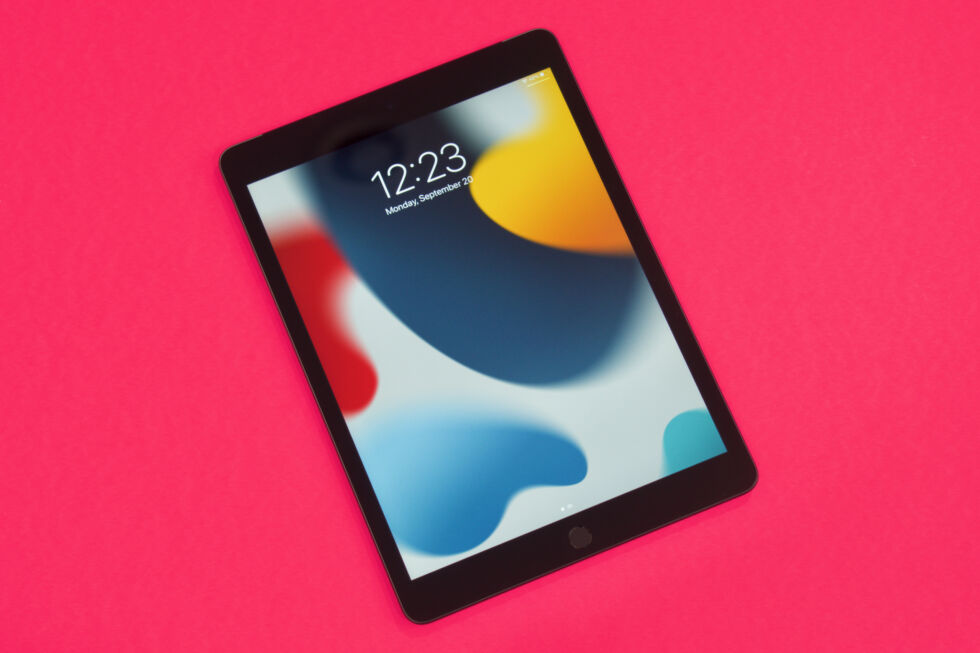-

The new 9th-generation iPad looks just like the last one (and also the one before that). [credit:
Andrew Cunningham ]
As a rule, Apple doesn’t focus on budget-friendly gadgets. And that strategy has worked well over the last two decades—the company’s predilection for premium products at premium prices (not always unreasonable or uncompetitive prices, but premium ones) has paid off in the form of consistently extraordinary revenue and profit margins.
Apple iPad (2021)
But the handful of explicitly price-conscious devices Apple does sell, including the $329 10.2-inch iPad and the $399 iPhone SE, are some of the most quietly excellent devices it makes. They use processors that were in Apple’s flagship phones just a couple of years ago, rather than mediocre cut-rate chips that were purpose-built for cheap devices. You get years and years of software and security updates, unlike the paltry two years that Google wrings out of phone makers who participate in the Android One program (to pick one example). And while Apple cuts costs by recycling years-old designs and parts, it usually doesn’t skimp on construction and materials, so your hardware still looks and feels nice despite being a bit dated.
That’s all you need to know about Apple’s 9th-generation iPad, which you can still pick up for $329 starting September 24. I am sure that more people are going to read our review of the 6th-generation iPad mini, because it has a brand-new design and a cutting-edge processor in it. There’s certainly more to say about that device. But a whole lot more people are actually going to buy and use this ho-hum, workaday, plain-old iPad.
